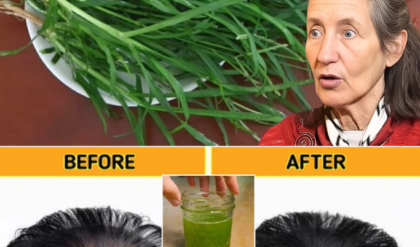Hydroponics, the art of growing plants without soil, is derived from the Greek words “hydro” (water) and “ponos” (labor). This innovative gardening method uses nutrient-rich water solutions, making it a highly efficient and sustainable way to cultivate plants. As water conservation and space efficiency become increasingly important, hydroponics is gaining immense popularity. Here’s how you can create your own hydroponic system at home and enjoy fresh, homegrown produce year-round.
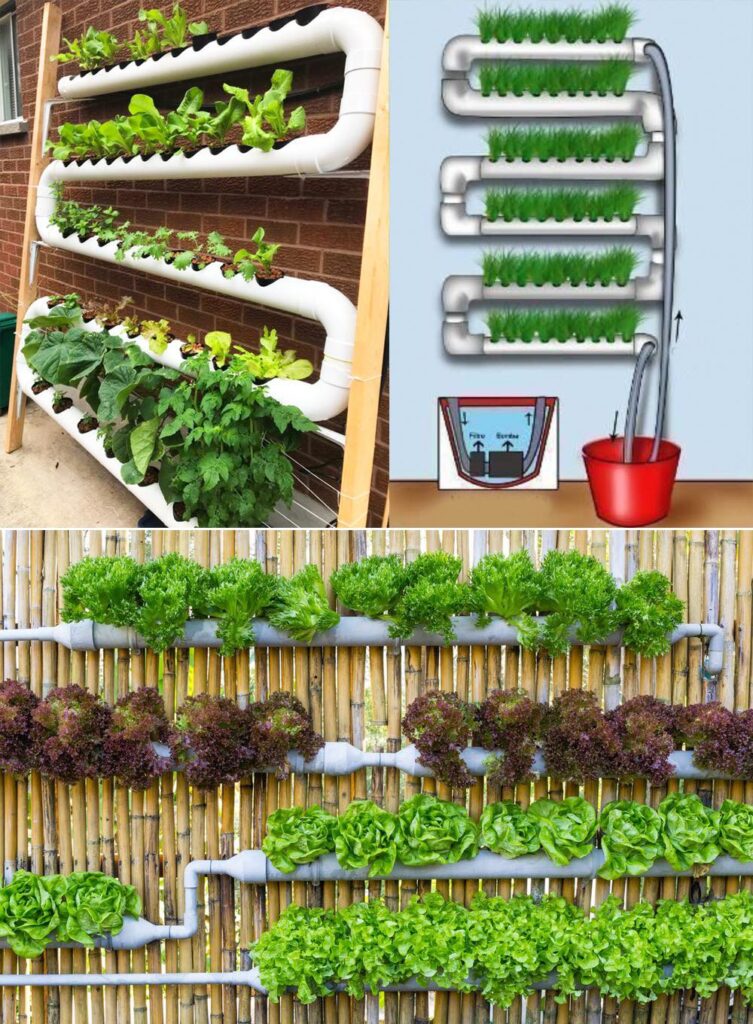
The Benefits of Hydroponics
Accelerated Growth: Plants grown hydroponically can grow up to 25% faster and yield up to 30% more than traditional soil-based methods.
Water Efficiency: Hydroponics uses up to 90% less water than conventional gardening, making it an eco-friendly option.
Space-Saving: Ideal for urban settings, hydroponic systems can be set up in compact spaces.
Disease Resistance: Eliminates the risk of soil-borne pests and diseases, ensuring healthier plants.
Year-Round Gardening: With the right setup, you can grow fresh produce regardless of the season.
Types of Hydroponic Systems
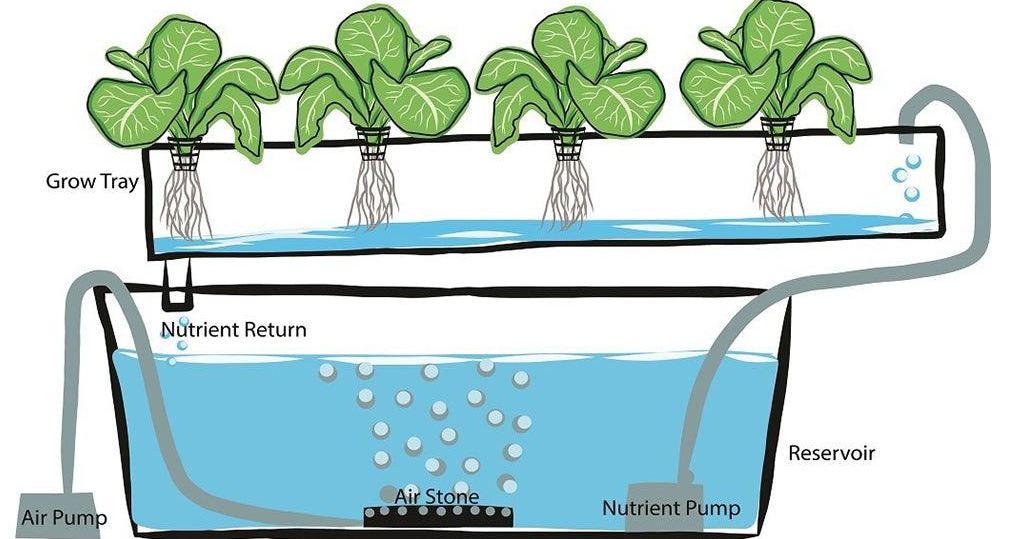
Hydroponics comes in various forms, each suited to different needs and levels of expertise:
- Wick System: A beginner-friendly system where nutrient solutions are absorbed by wicks into the growing medium.
- Deep Water Culture (DWC): Plants are suspended in a nutrient solution, with oxygen provided by an air stone.
- Nutrient Film Technique (NFT): A continuous flow of nutrient solution runs over the roots in a tilted channel.
- Ebb and Flow (Flood and Drain): Periodically floods the grow tray with nutrient solution before draining it back.
- Drip System: Nutrient solution is dripped directly onto the base of each plant using a timer.
- Aeroponics: Roots hang in the air and are misted with nutrient-rich water, offering excellent oxygen exposure.
How to Build a Basic Deep Water Culture (DWC) Hydroponic System
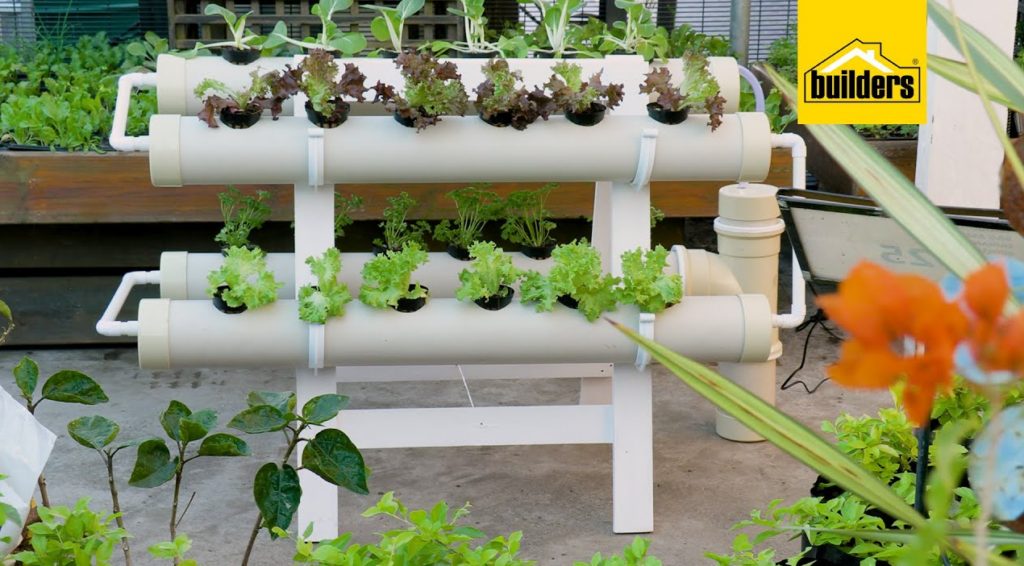
Materials You’ll Need:
- A large container or storage tub for the water reservoir
- An aquarium air pump and air stone for oxygenation
- Hydroponic nutrients to feed your plants
- A pH control kit to maintain ideal water conditions
- Net pots or plastic cups to hold the plants
- A growing medium like hydroton or rock wool
- Seeds or seedlings of your choice
- A lid or cover for the reservoir
Step-by-Step Instructions:
- Set Up the Reservoir:
Fill the container with water, leaving about an inch from the top. This will serve as your nutrient solution reservoir. - Add Air Supply:
Attach the air stone to the aquarium pump and place it in the reservoir. The air stone will oxygenate the water, ensuring roots have ample access to oxygen. - Prepare the Lid:
Cut holes in the container lid large enough for the net pots to fit snugly. The plants’ roots should partially touch the nutrient solution. - Plant Your Crops:
Place your seeds or seedlings into the growing medium inside the net pots. Ensure they are secure but not tightly packed. - Mix the Nutrients:
Follow the instructions on your hydroponic nutrient package to prepare the solution. Adjust the pH to a range of 5.5 to 6.5, ideal for most plants. - Assemble the System:
Insert the net pots into the lid and place the lid on the reservoir. Ensure the air pump is running to circulate oxygen. - Monitor and Maintain:
Regularly check nutrient levels, pH balance, and water levels. Replenish the solution as needed and monitor plant health daily.
Tips for Success
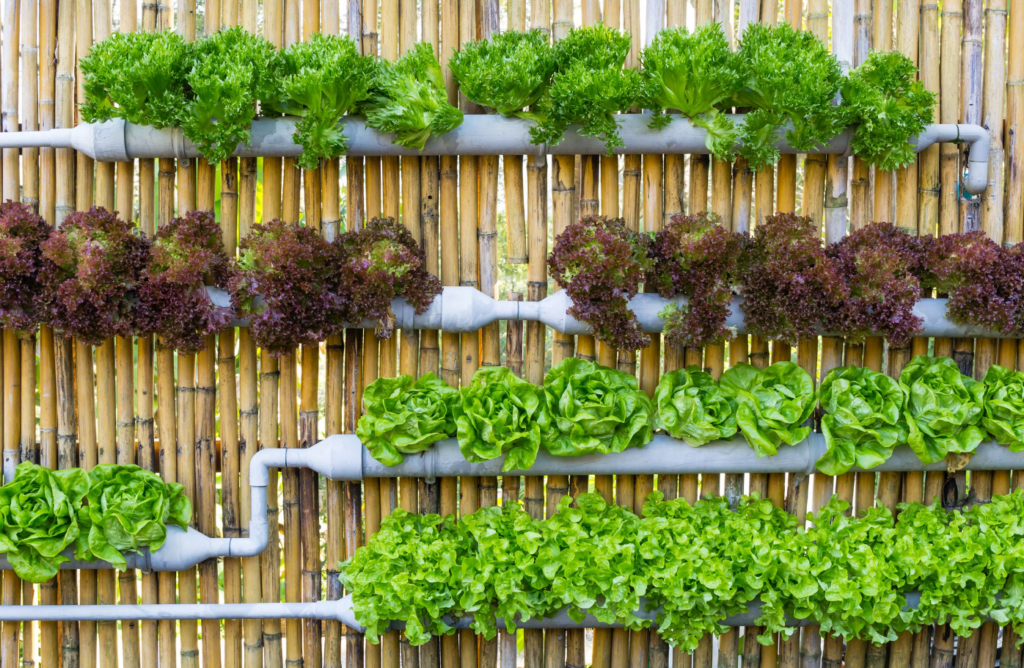
Lighting: Plants need at least 12-16 hours of light daily. If natural sunlight is limited, invest in LED grow lights for optimal growth.
Temperature Control: Maintain a temperature range of 68°F to 72°F (20°C to 22°C) for the best results.
Hygiene: Keep the system clean to prevent algae growth or contamination. Disinfect components periodically.
Nutrient Adjustments: Tailor nutrient solutions to the specific needs of the plants you’re growing.
Why DIY Hydroponics?
Crafting your own hydroponic system is not only a cost-effective project but also an environmentally sustainable way to grow plants. Whether you’re a seasoned gardener or a curious beginner, hydroponics allows you to grow fresh, flavorful produce with less water, space, and effort. From lettuce and herbs to tomatoes and peppers, the possibilities are endless.
Start Growing Today
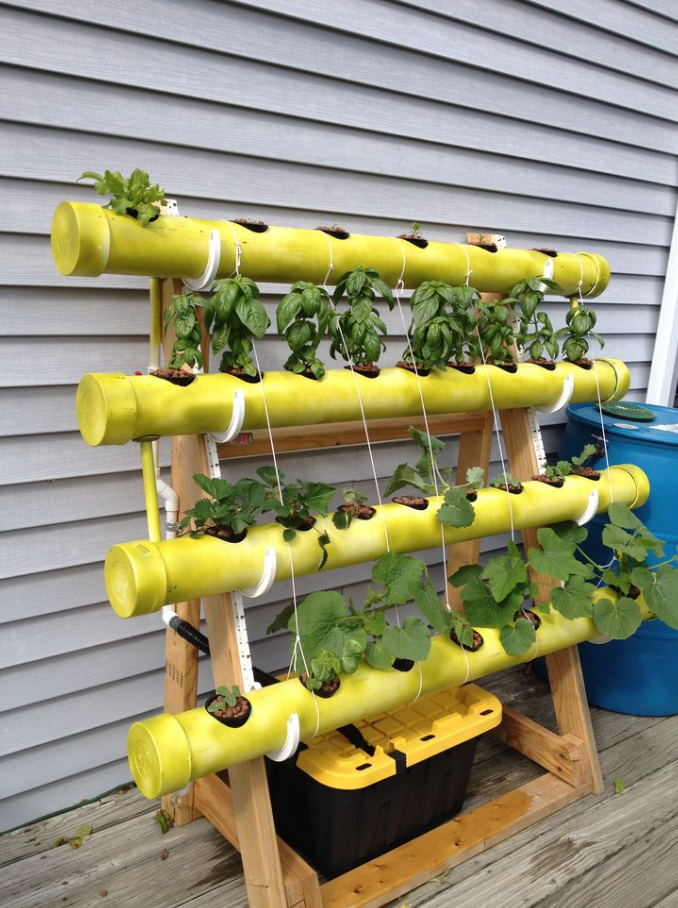
Hydroponics is a game-changer for gardening enthusiasts, combining science, sustainability, and practicality. With a little effort and dedication, you’ll be enjoying your own homegrown vegetables in no time. So, why wait? Build your hydroponic system today and take a step toward a greener, healthier future.
Inspired by this? Share the idea with your friends and encourage sustainable gardening!



